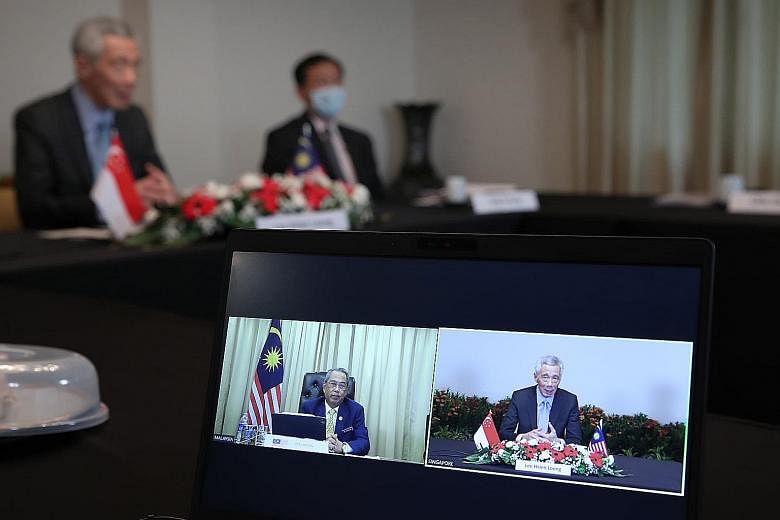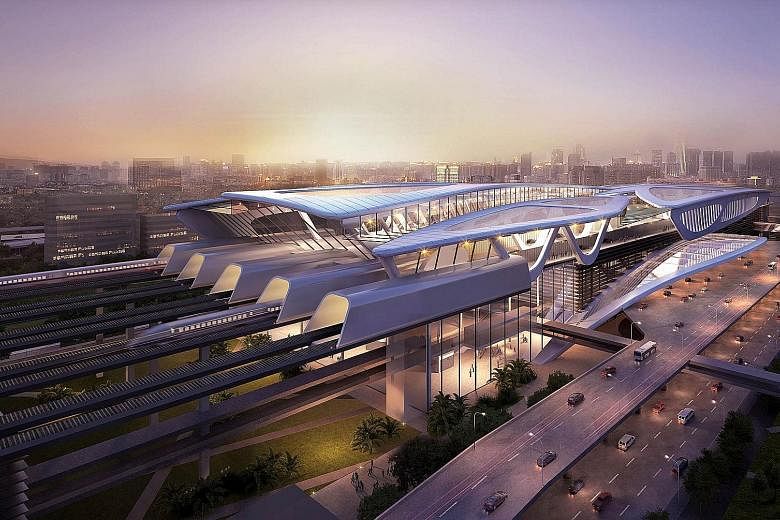The axing of the Kuala Lumpur-Singapore High Speed Rail (HSR) will have no immediate bearing on development plans for the Jurong region, which was slated to host the project's southernmost terminus, experts said yesterday.
Jurong's status as the economic and social centre in the west predated the HSR and will survive it, said Singapore University of Social Sciences' associate professor of economics Walter Theseira.
He said: "I believe our plans to continue developing the Jurong region remain unchanged; they were not contingent on the HSR being built."
The 350km line would have run from a terminal station in Bandar Malaysia, downtown Kuala Lumpur, to a terminal in Singapore's western Jurong area.
The surrounding Jurong Lake District was positioned, in 2017, as Singapore's future second Central Business District (CBD), with an ambitious 20-year blueprint for commercial, housing, nature and transport developments, along with the potential for creating some 100,000 new jobs.
Two years later, the Government announced that the district would include a new 7ha integrated tourism development from 2026.
Flexibility was worked into plans for the district, to cater for changing circumstances such as this, said the National University of Singapore's Assistant Professor Raymond Ong, who researches transport infrastructure.
"So the land that was acquired for the HSR can easily be reconfigured or redeployed to align with the long-term vision of the region."
Prof Theseira said that Singapore could wait and see how Malaysia progresses with reported plans to continue with a domestic, "downgraded" version of the HSR connecting KL to Johor Baru.
"(If) there is a realistic prospect that the system could be extended to Singapore and provide the same quality of service between Singapore and KL as originally planned... then we could always hold the land in reserve, or lease it out on a short-term basis," he said. "(Otherwise) we should just proceed with longer-term redevelopment with the land."
Mr Harrison Cheng, associate director of consultancy Control Risks, said the silver lining was that the JB-Singapore Rapid Transit System (RTS) Link rail shuttle service remains on track.
The first civil contract for its construction was awarded in November last year, with the second due in the first quarter of this year. The RTS Link should be operational by end-2026.
"There is much stronger consensus in Putrajaya, Johor and Singapore to implement this in time… HSR, by comparison, was far more contentious a proposition since Najib fell," said Mr Cheng.
Former Malaysian prime minister Najib Razak presided over the signing of the HSR agreement with Singapore in 2016.
Singapore MP Saktiandi Supaat, who chairs the Government Parliamentary Committee for Transport, still looks forward to future connectivity initiatives between the two countries.
"The economic and agglomeration effects are huge between cities in Malaysia and Singapore," he said.
Mr Cheng said that the aborted project was unlikely to alter the tenor of bilateral relations between the Causeway neighbours.
"The only change is that Singapore is going to be warier of getting into bilateral projects, given not just the economic conditions caused by Covid-19, but importantly the political risk over the border… Changes in government in Malaysia tend to trigger contract risks."



